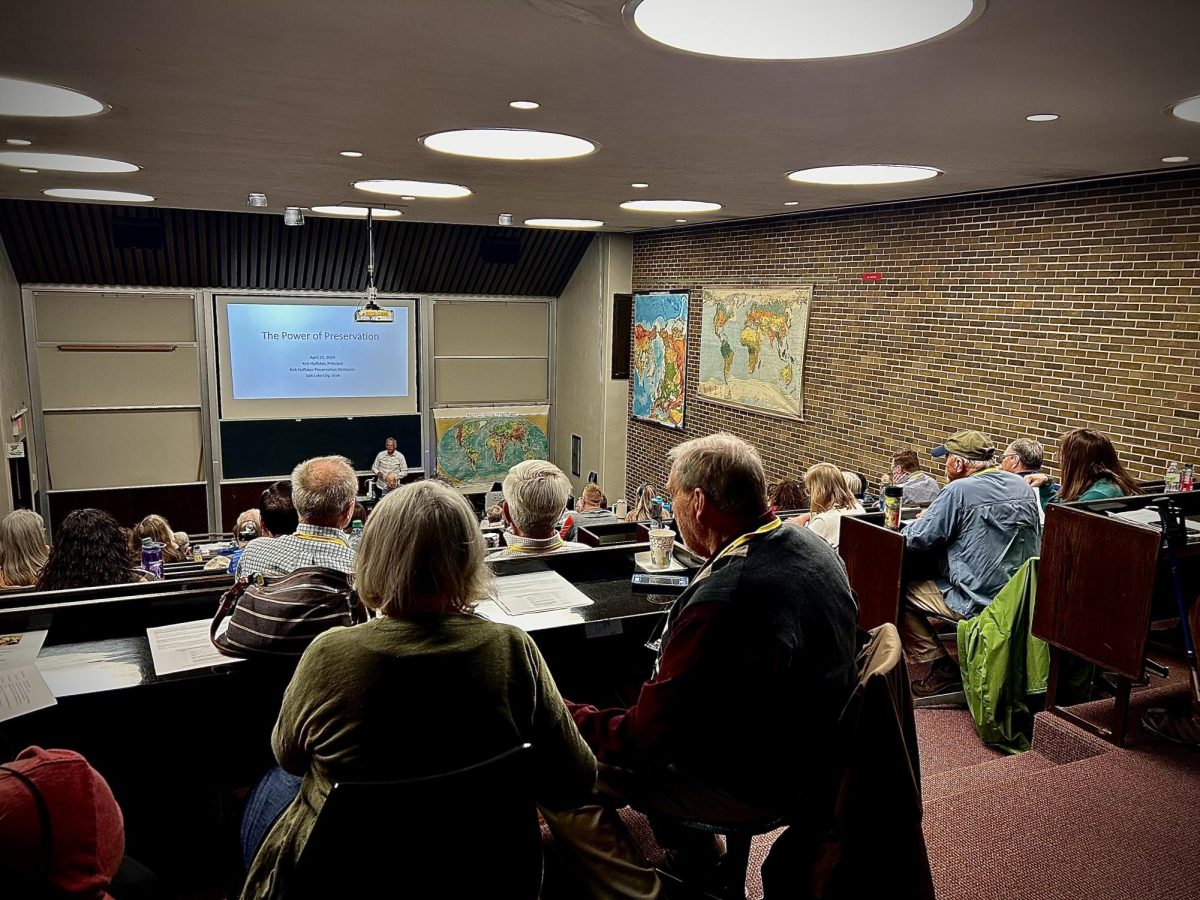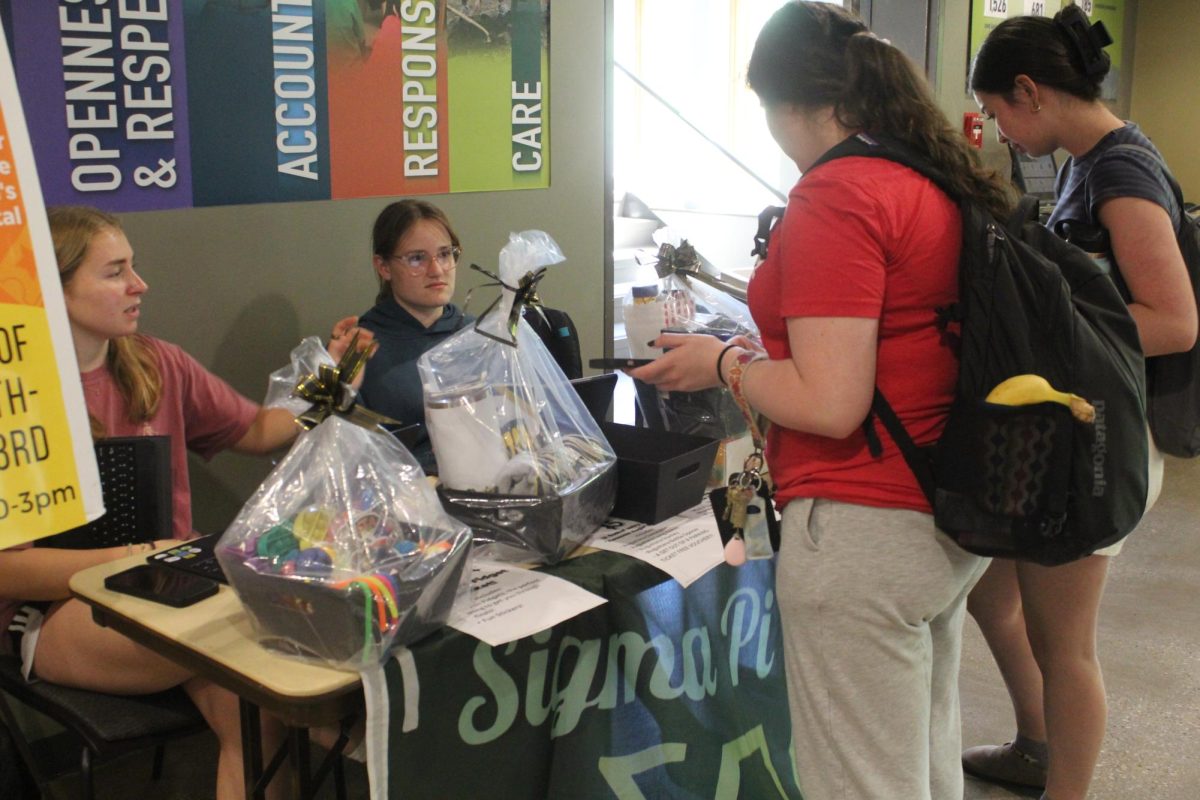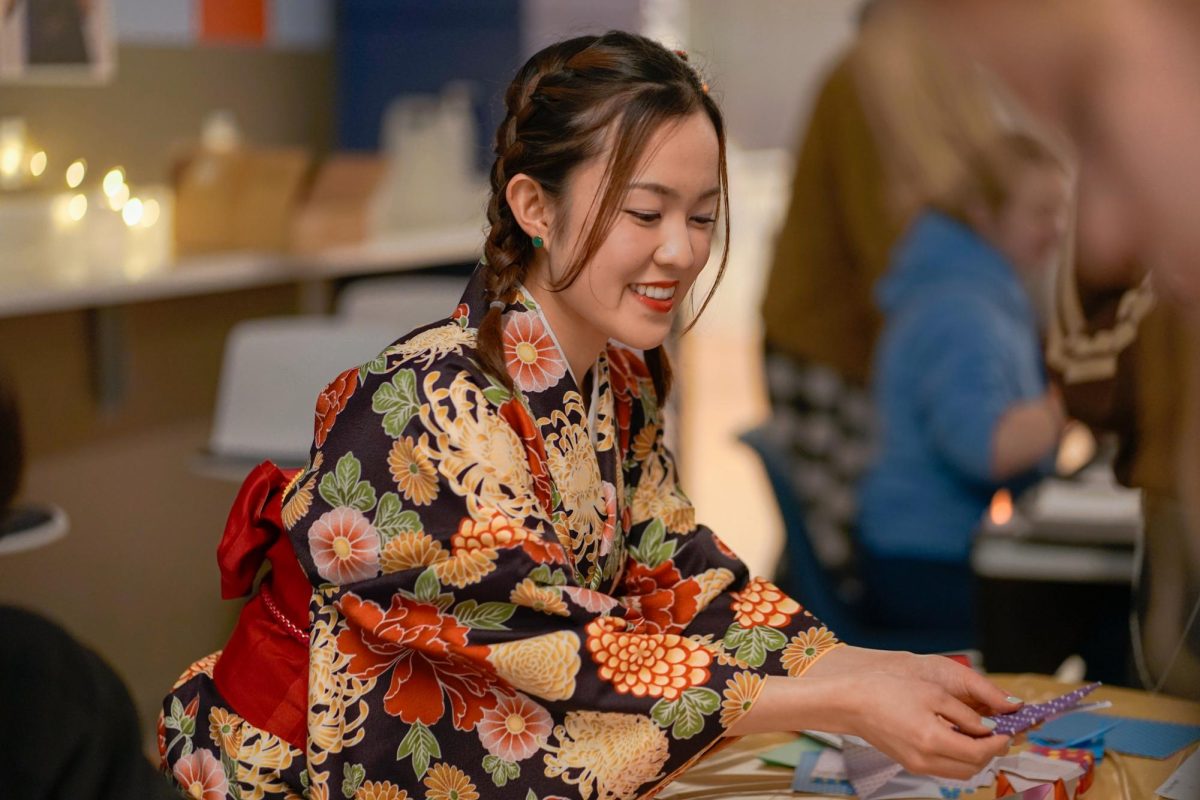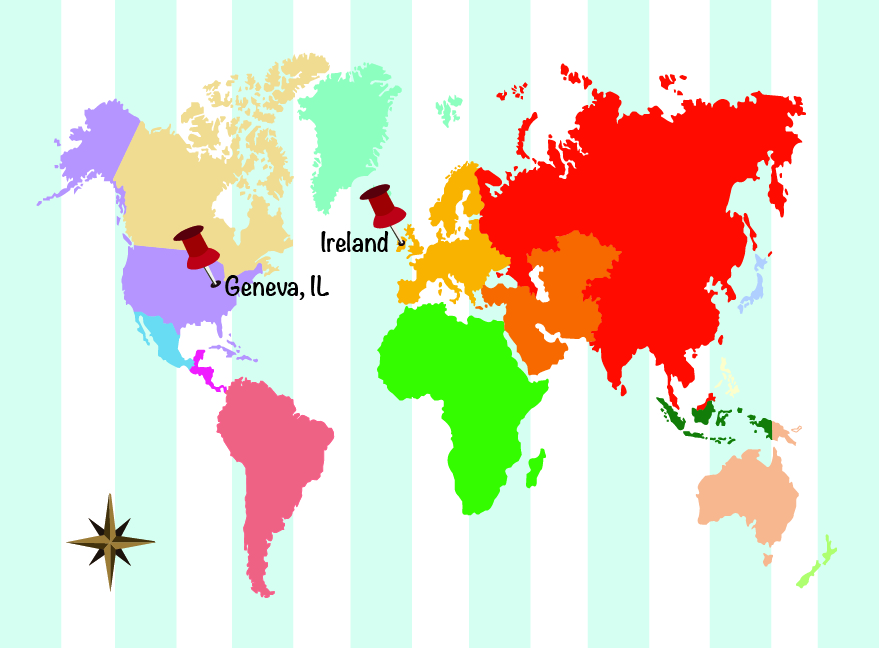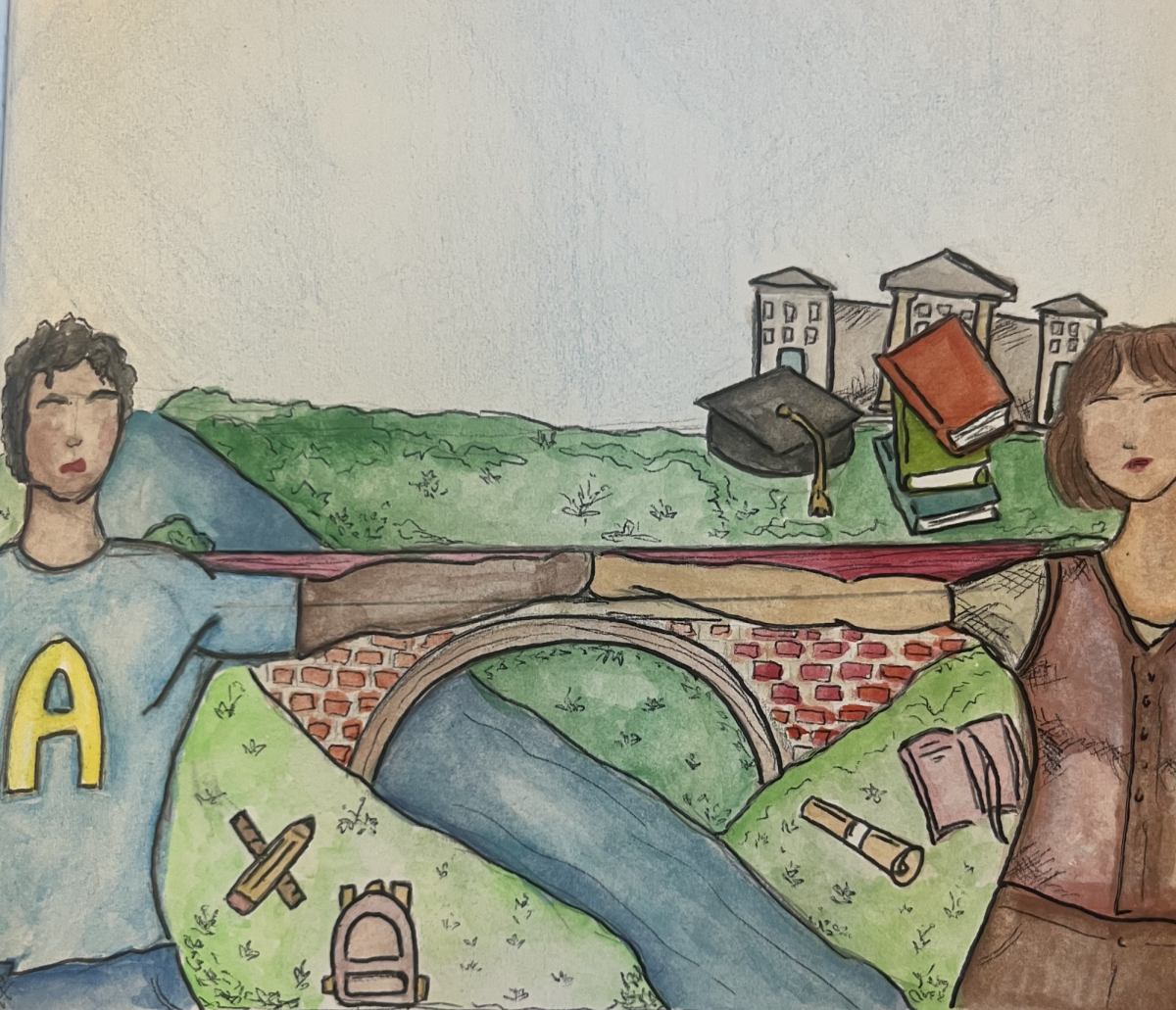Applications for the 2018-2019 study abroad programs closed on Monday, Jan 15. According to Director of International and Off-Campus Study, Allen Bertsche, 300-310 students study away each year, about 50% being juniors, with sophomores and seniors making up the rest. However, when the college switches to semesters in 2019-2020, the study away program will be adapting alongside it.
Currently, students can choose between a trimester abroad offered in 5-8 locations which rotate annually, J-terms, where students split their time between Augustana and another location, and break programs. Students use the 2000 dollars allocated to them in Augie Choice funding to help cover the cost of the program. According to Bertsche, students must apply for Augie Choice to ensure that they have not already been allocated the grant, and that they have completed 30 credits and have a 2.0 GPA or higher, which is required to participate in the study abroad.
Ghita El Mendri, sophomore and political science major, loves the concept of studying abroad. “I love travelling, but it’s different when you’re there for a few days with your friends or family. Living with a host family for five weeks, eating their food, hearing about their lives – you get really attached to that part of the culture.” El Mendri took part in the fall 2017 Brazil program led by Dr Mariano Magalhaes and used her Augie Choice funding. She also hopes to study abroad again during her time at Augustana.
Sophomore Erin Cygan, a biochemistry and environmental studies major, was approved on Friday to join the 2019 New Zealand Spring Internship Program. “I’m interested in the program because it enables me to travel to a location I have always dreamed about visiting while furthering my education. Hopefully this opportunity will allow me to develop the skills needed by professionals in my fields of study. Perhaps it will even expose me to the intersection(s) between my two majors and provide assistance in narrowing down my career path.” Cygan shares El Mendri’s enthusiasm about spending a long-period of time – in her case ten weeks – in a different country and culture. “ I am intrigued by the Maori culture and its incorporation into daily society in New Zealand. Also, New Zealand’s proximity to other Pacific Islands likely makes for some unique cuisine. Aside from the food, I will be able to interact with these individuals and learn about their diverse experiences, and am also particularly interested in engaging in the outdoor lifestyle of New Zealanders”.
Junior DaeNia La Rode, majoring in neuroscience and premed, is currently taking part in he Australia program. She considers studying abroad to be “a once in a lifetime experience”, and appreciates the lack of a language barrier in her trip so far. Unlike Cygan and El Mendri, she finds herself in a somewhat similar environment to the United States, due to its “big cities with similar architecture”. However, La Rode also said, “I wish Augie took less time teaching us do’s and don’ts and more of how to enjoy full immersion in this new culture.”
However, following the switch to semesters, Bertsche explained that there would definitely be changes within the program structures to which students like El Mendri , Cygan , and La Rode are accustomed. J terms will stay largely the same, and will likely be completed during January, or early in the fall. Summer programs are not expected to change. However, the longer study abroad programs will look quite different. “The idea is that students get to pick where they go, when they go, what they want to do there. So instead of rotating a number locations as we do now, we’re always going to have the same programs offered, like London, Milan, Amsterdam. We want to have an internship, an exchange program or a third party program on every continent, and we’re looking at new locations like Shanghai and Cape Town.”
Therefore, Augustana anticipates offering about 50 study abroad programs each year in the same location. According to Bertsche, 10-15 will be internship opportunities, around the same number will be exchange programs with various universities and around 15 more will be 3rd party programs.
As these programs are not limited to Augustana students, but instead will include hundreds of other students from around the world, Bertsche believes participants will have a far more immersive experience, not having the safety net of a large group of American students.
There will not be a specific program fee which varies according to program locations; instead, students pay their tuition direct to Augustana as they would for a normal term. In some cases airfare, meals and discretionary spending are not expected to be included in the program cost, but according to Bertsche, Augie Choice can be used for this purpose.
Certain students have specific location-based goals in mind. For example, Cygan said, “While the United States engages in certain sustainable practices, New Zealand will provide me with a deeper understanding of a sustainable culture and introduce me to environmental studies related opportunities that I cannot easily pursue in the United States.” Bertsche recognizes that some students may be motivated to study in a specific location not on the expanded list of programs, and will wish to use Augie Choice for it. Therefore, after the new study abroad programs are established, any funds left over following the deadline for applications may be allocated to this student after due consideration. “We want to get rid of the idea that only students with a lot of money study abroad,” Bertsche said. “We hope that with the new program, students can pursue very specific interests and goals, and finances don’t have to be an obstacle in that decision.”
Bertsche anticipates that a ‘sneak peek’ information session will be held in May to inform students of the nature of upcoming programs, while the main Study Abroad Fair will happen in September.
Bertsche also said, “I expect that in the first two years engagement with the program may fall as juniors and seniors are less likely to take the risk of spending 15 weeks abroad, especially those who are pursuing double majors or internships here. A 15 week semester abroad is a large commitment. However, once we have students who started out in the semester system, I’m hope to see sixty, maybe seventy percent participation in the program.”
Studying abroad set to change alongside shift to semesters
January 25, 2018


